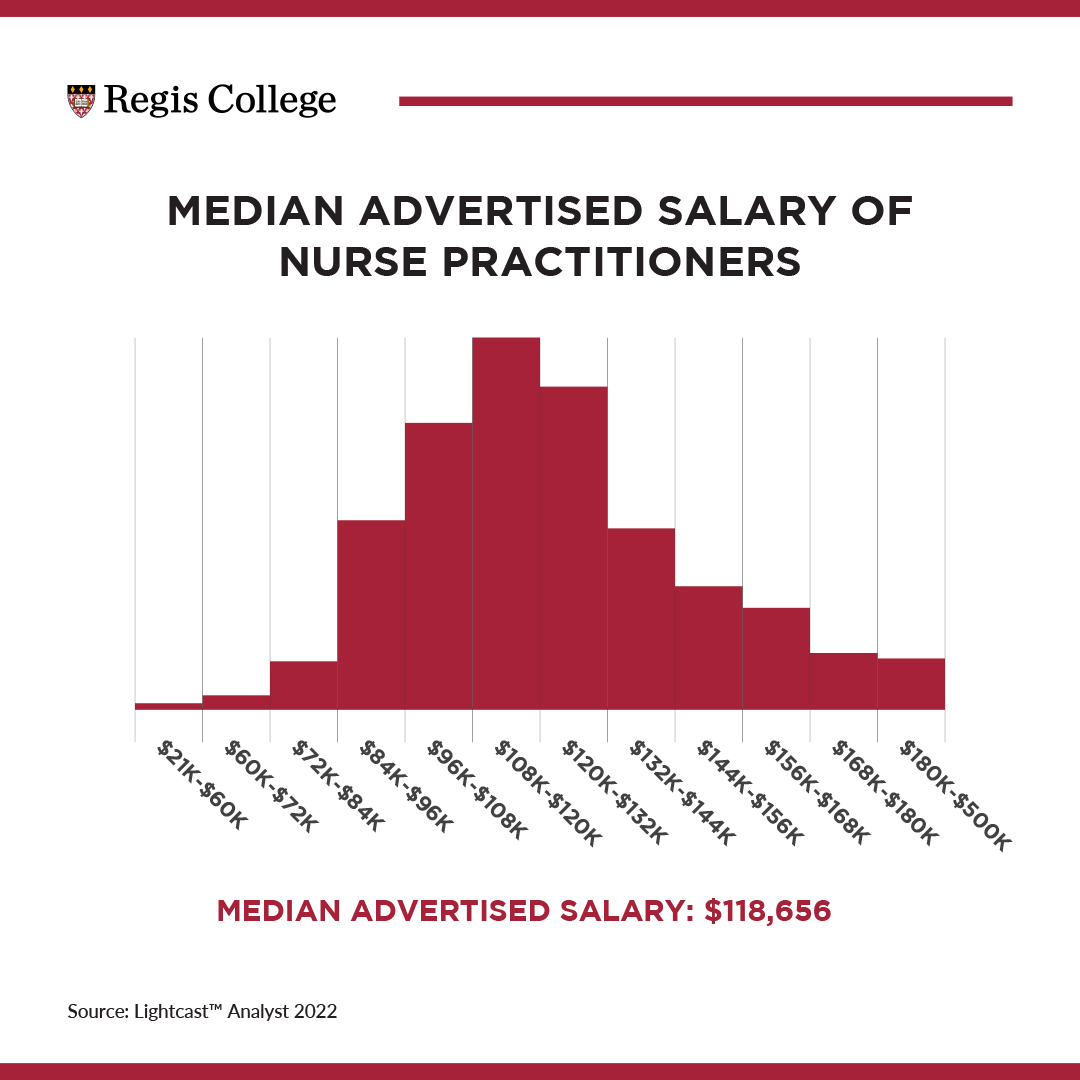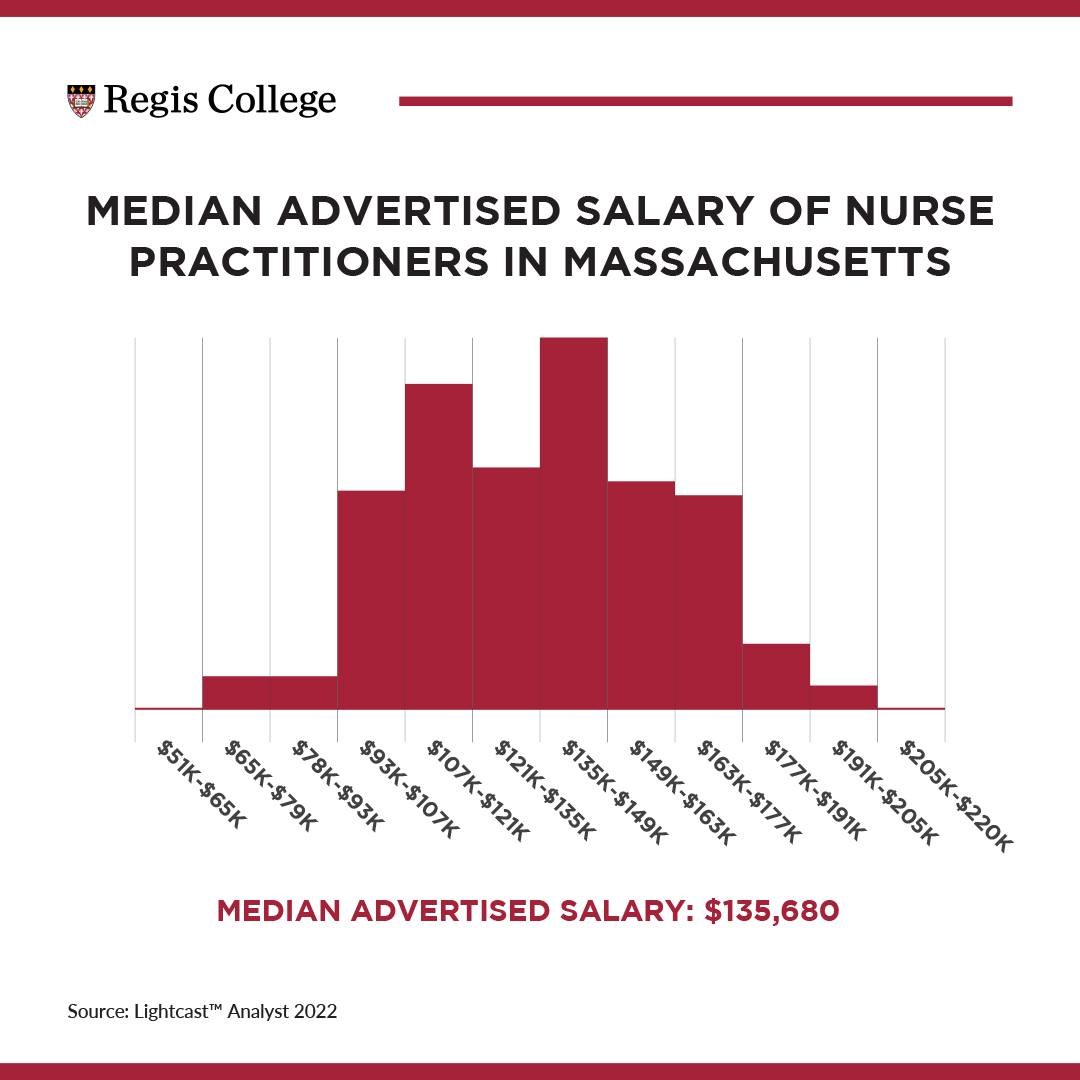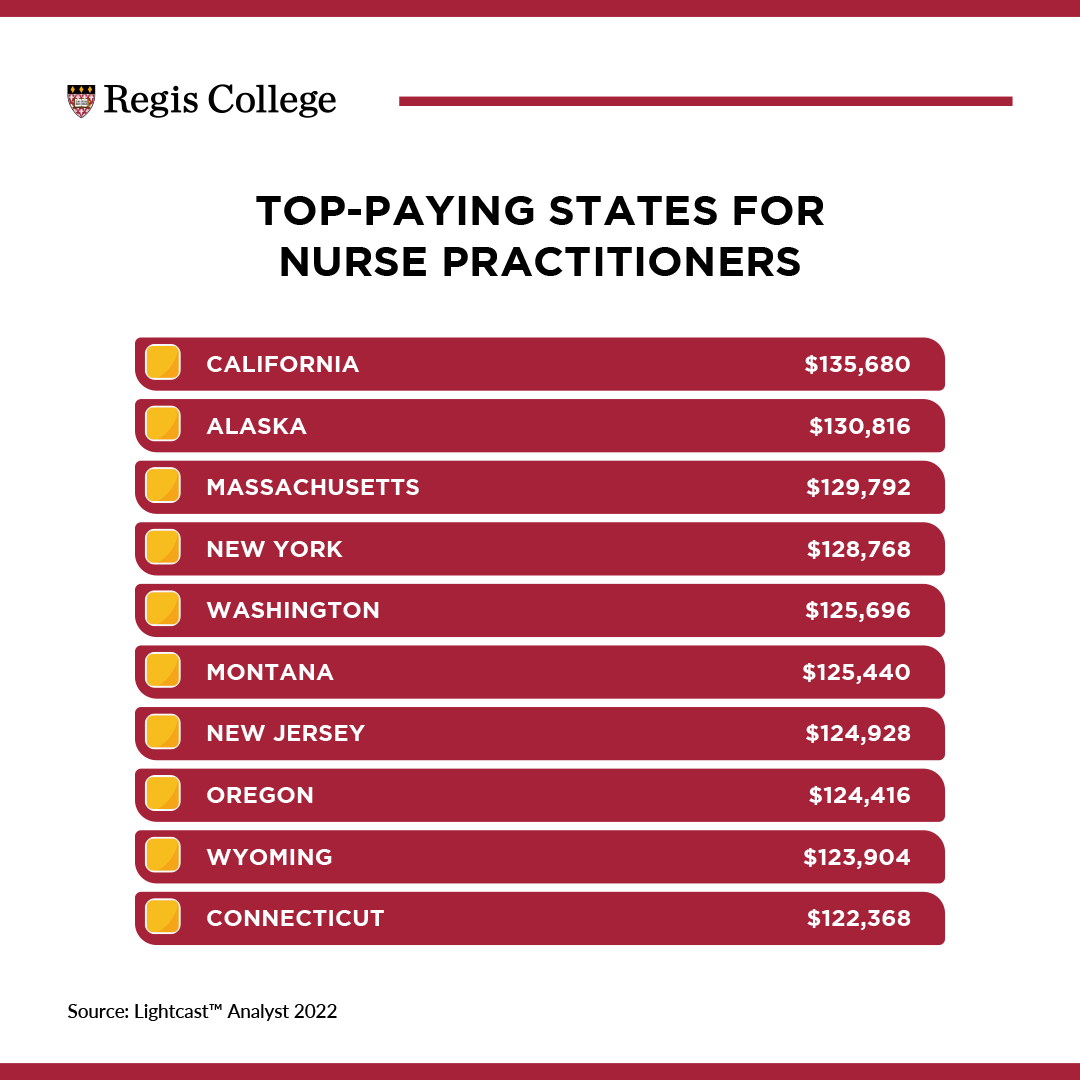Many aspiring nurses question which is the appropriate career path they should follow to become a healthcare professional. Should they seek to enter the field as early as possible by working as an LPN or CNA to begin gaining experience? Should they become a registered nurse? Or should they aim to become a nurse practitioner as quickly as possible?
Ultimately, the answer to this question will depend on a number of factors, such as your desired level of responsibility on the job and your specific interests. Another important factor is, of course, salary: How much money do you need to earn to live the lifestyle that you want to live?
Becoming a nurse practitioner is a common career goal for aspiring nurses due to the increased freedom, flexible schedule, and professional autonomy of the job. It doesn’t hurt that nurse practitioners also tend to enjoy relatively high salaries and exceptional job stability due to demand for those with their experience.
Below, we explore the average salary of nurse practitioners and take a look at some of the factors which can influence their pay.
How much does a nurse practitioner make?
According to a government report, nurse practitioners earn an average median salary of 132,050 (or roughly $76.47 per hour). Importantly, this figure is typically reflective of base pay, and does not include any benefits such as retirement contributions or overtime or weekend differentials, which can raise this number even higher.

Is Becoming an NP worth it?
The BLS also estimates that the demand for nurse practitioners is expected to grow by approximately 40 percent between 2023 and 2033, which is much faster than the demand for all other jobs. For comparison, consider that the demand growth for all jobs is estimated to be approximately four percent. This means that NPs will enjoy nearly 10 times the demand as the typical worker, which is an astounding fact.
There are a number of factors driving this increased demand. By far the largest factor is the increase of patient populations. As the U.S. population continues to age—particularly among the Baby Boomer generation—more medical intervention and support will be required to ensure they live meaningful, healthy lives.
Nurse Practitioner Salary in Massachusetts
According to government data, the average annual salary for a nurse practitioner working in the Boston area of Massachusetts is approximately $142,230. That being said, most NPs in the Boston area will earn between $131,981 and $154,517 per year.

This impressive salary makes Massachusetts one of the top states in the nation in terms of nurse practitioner pay. In fact, working in urban areas, such as Boston, NPs can expect to see even greater salaries.
In addition to location, it’s important to recognize other factors that could influence the salary. These factors include work environment, experience and specialty.
Factors That Influence NP Salary
1. Location
Location, location, location. While realtors drill it into our head, the same holds true for job seekers in the nursing industry. Location is a very important factor for salaries of being a NP.
According to a government report, some of the states that pay the highest annual salaries for nurse practitioners include:
- California: $135,680
- Alaska: $130,816
- Massachusetts: $129,792
- New York: $128,768
- Washington: $125,696
- Montana: $125,440
- New Jersey: $124,928
- Oregon: $124,416
- Wyoming: $123,904
- Connecticut: $122,368

2. Work Environment
Depending on where you practice, your salary as a nurse practitioner could be higher or lower than the average. This will most often be tied to the type of work you are doing, your workload, how much you are responsible for managing others, and other factors.
You can see this range of pay by looking at the findings of the Clinical Advisors 2019 Nurse Practitioner and Physician Assistant Salary Survey below:
- Hospital: $122,598
- Long-term Care: $115,000
- Hospital Clinic: $108,965
- Walk-in: $105,814
- Office Practice: $104,466
- Stand-Alone Clinic: $103,352
3. Experience
In nursing, as in most other fields, experience is a crucial factor in determining pay. When climbing the career ladder, it’s normal to start at a lower pay level compared to someone who’s been in the field for a longer period of time.
According to government data, individuals who have been a nurse practitioner for three years or less reported an annual average median salary of $116,100. In comparison, NPs who have worked over three years reported an average median salary of $120,100.
4. Specialty
Finally, the specific type of work that you specialize in and the patients that you treat can also significantly impact your pay. Below are the average salaries of nurse practitioners with popular specializations, according to the Clinical Advisors 2024 Nurse Practitioner and Physician Assistant Salary Survey:
- Psychiatry: $151,714 average salary
- Urgent Care: $142,500 average salary
- Geriatric Medicine: $153,340 average salary
- Adult Medicine: $140,200 average salary
- Primary Care: $123,149 average salary
- Family Medicine: $123,149 average salary
- Pediatrics: $117,229 average salary
Choosing to explore a specialty can provide you with more opportunities on what your specific interests and passions are. Nurse practitioners will often specialize in one or more areas of practice, and these specialties can add to your demand and pay levels. Specialties can also provide new career opportunities and an avenue for personal growth.
Becoming a Nurse Practitioner
As you can see from the above, nurse practitioners tend to enjoy very healthy and competitive annual salaries, along with high levels of job stability and demand. While pay can be influenced by a number of factors, including where you work, your level of experience, and which (if any) specializations you have chosen, it’s clear to see why so many aspiring nurses have the goal of becoming a nurse practitioner.
What Degree Do You Need To Be a Nurse Practitioner?
In order to achieve this career goal, aspiring nurses need to be aware of the minimum education level required to do so is a degree in nursing. If you are interested in becoming a nurse practitioner, there are several degree options available you should consider.
One of the key steps in the process will be completing an accredited graduate degree through a nurse practitioner program. At a minimum, you will need to earn your Master of Science in Nursing (MSN). Increasingly, employers have begun to require NPs complete their Doctor of Nursing Practice (DNP).





